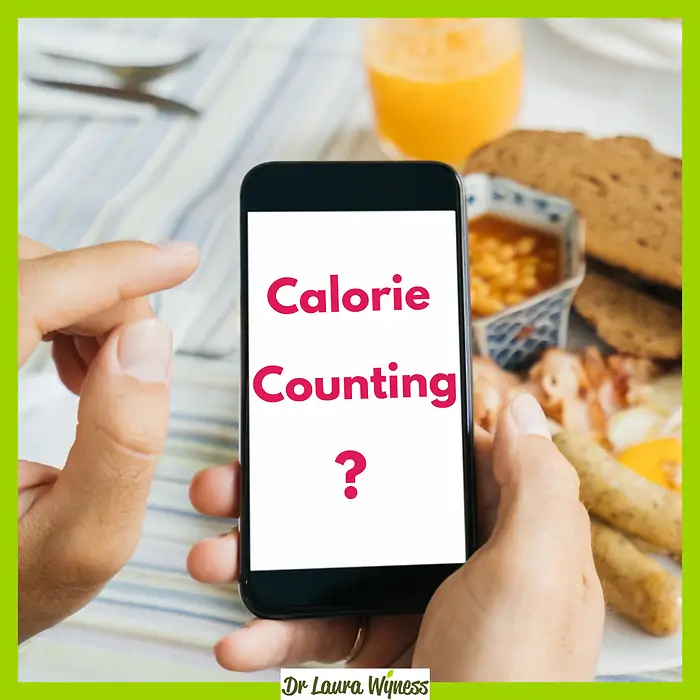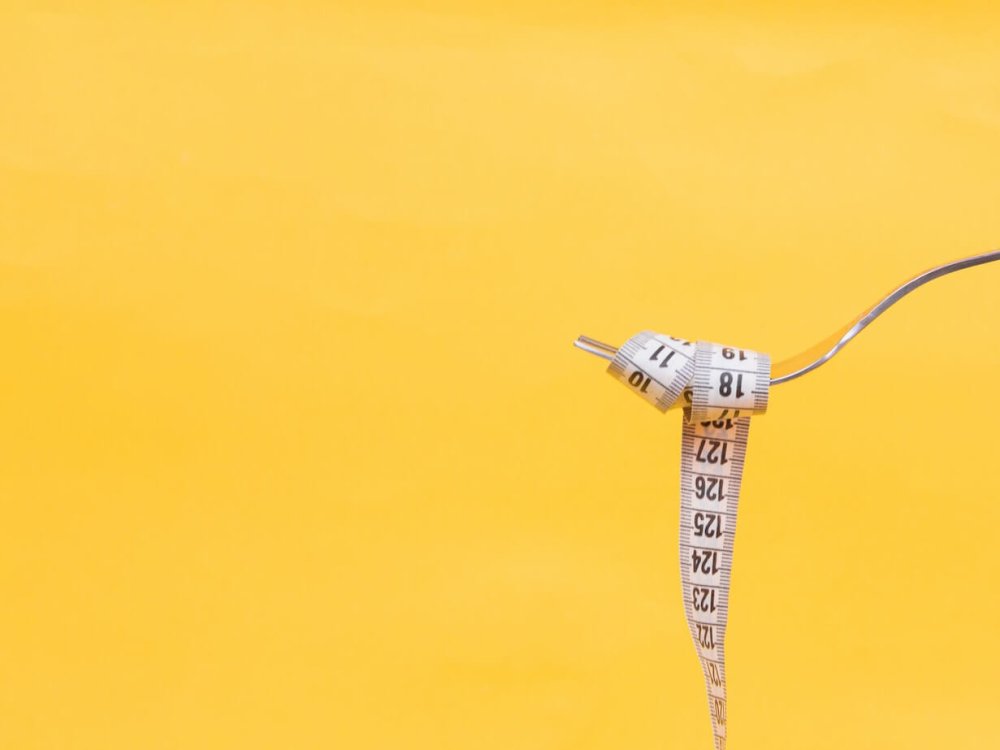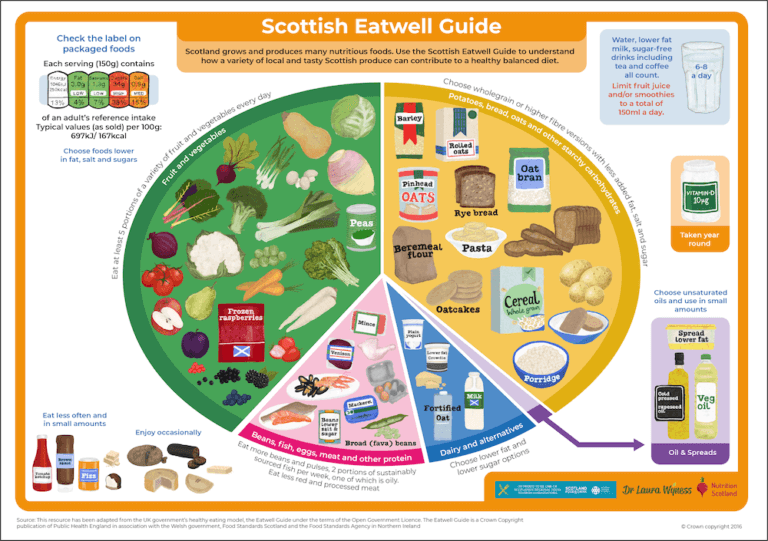Article prepared by Valeria Folco, ANutr
Weight loss is made to look easy by many apps. The formula for success consists in helping you to calculate how many calories you should eat in a day and to track them on a daily basis. Simple and straightforward it seems. Is it though?
There is some truth in this: if the goal is to lose weight, then there is a need for a calorie deficit (i.e. energy in less than energy out). However, the calorie counting system is flawed and not as accurate and effective as marketing messages want us to believe.
Let’s explore this in more detail.

1. Calorie counting is not accurate for individual needs
If you have tried a calorie counting app before, you may be familiar with four key questions you are asked: age, sex, body weight and height. This information is used to calculate your basal metabolic rate (BMR). In other words: the number of calories your body consumes at a resting, fasted and thermo-neutral environment. On top of that, the app will also estimate your physical activity level and the calories you need for that.
However, there are some crucial elements affecting your energy needs that are not kept into account, for example your body composition. Two people may have the same body weight, and yet different levels of fat and muscle mass (the latter requiring more energy than the former). Our genes may also have an impact on body weight and appetite regulation of those with a genetic predisposition (1,2).
The bottom line is that calculating an individual’s daily calorie needs is complex, and the number provided by the app is often not very accurate. In some specific clinical settings, doctors and dietitians may decide to track patients’ energy needs and food intake to help treat their health condition. However, it is important to remember that health professionals use advanced knowledge and resources for this.
2. We don’t need the same number of calories every day
Apps will provide you with the number of calories to eat in a day, with a variation for the days you work out and those you don’t. However, physical activity is not the only factor that has an impact on your energy needs. Other factors include: our stress levels (read this article to learn more), how much we sleep and the medication we take (e.g. glucocorticoids).
Did you know that our total energy needs can differ during the menstrual cycle? Some scientific evidence shows that the total energy expenditure is higher during the luteal phase (after ovulation until the start of a period) than the follicular phase(3) (day 1 of a period until ovulation).
Our energy needs change over time because they depend on multiple factors.
3. Food labels are not always accurate
Apps use food labels to track your daily calories. However, the calorie number on food labels does not always correspond to the number of calories available after digestion and metabolism.
Why? There are two main reasons:
1. The thermodynamic effect: some energy (calories) is needed for the breakdown and digestion of food. This means that the number of calories available for use is lower than the number found on the food label. For example, the metabolised energy of almonds is thought to be about 25-30% lower than the food label number(4).
2. Caloric availability: our body cannot use all the calories contained by some foods. For example: if you eat sweetcorn, when you go to the toilet the next day, you may notice some intact sweetcorn in your poo. Roughly, 100g of canned sweetcorn contains 70kcal according to the label, but the energy available to our body is less than that. This is because the human body cannot fully digest fibre. Some carbohydrates are higher in fibre than others (e.g. wholemeal bread has more fibre than white bread), resulting in different available energy content for the same quantity of food.
4. Calories are not all the same
Online we often read messages like “a calorie is a calorie”. However, we don’t eat calories, we eat foods that contain a combination of nutrients, fibre and calories. The way that food is digested and metabolised by your body matters, let’s see why.
Some nutrients are more satisfying than others (in terms of feeling full, protein foods are very effective in helping you feel full for longer, followed by foods with fibre, then fat and simple carbohydrates). Imagine feeling peckish and reaching for a chocolate bar. Shortly after you may feel more energetic. About an hour after that, you may experience an energy dip. Does that sound familiar? If so, you are not alone! The chocolate bar contains lots of sugar, which is digested fast (giving you an energy boost), but the quick rise in sugar in your blood is followed by a quick decline (and that is when you may feel a bit lethargic). If you eat a snack that also includes protein and fibre (e.g. yogurt with sliced banana and nuts), it will be digested more slowly. This happens because the sugar contained in the banana is combined with fibre. Therefore, there will not be a sugar rush and you will feel full for longer.
Also, the number of calories in a food does not always mirror its nutritional profile. Two snacks may contain a similar number of calories, and yet have very different nutritional profiles. For example, a chocolate bar and a yoghurt snack may be similar in calories, but a chocolate bar contains more added sugar and saturated fat than a yogurt snack, which provides you with more fibre, proteins, unsaturated fat and a range of vitamins and minerals such as B-vitamins and calcium.
A friendly reminder: just because a food is less nutrient-dense than others, this does not make it a “bad food”. That label does not exist! Food is food, and there is space for all the foods we like in a balanced diet.
5. Long-term sustainability
Is it sustainable on a long-term basis to count the calories we eat every day?
When we eat out of home it may be harder to keep track of the calories. Many restaurants and cafés now have calories on their menus, but as mentioned above, the number of calories does not always reflect the nutritional value of a food. If we cook a meal from scratch, having to measure and add every single ingredient may be time-consuming and stressful. Some people may prefer to use the same ingredients or make the same food often, so that they do not need to input new ingredients. Variety is encouraged in a healthy and balanced diet to meet all nutritional needs.
Also, calorie counting may be a trigger for some, for example individuals at risk of disordered eating. For people vulnerable to, or suffering from, an eating disorder keeping track of the calories eaten in a day can cause of a lot of distress. For more information and support, check out the BEAT website.
In summary, the human body is complex, and an app cannot accurately and efficiently tell you how best to support your needs. Moreover, food is not only fuel and nutrients, it can also be a pleasurable experience and a way to socialise with others. Some individuals may find calorie tracking convenient and a useful tool to keep track of their weight, and their choice should be respected. The important thing is to understand how our body and the calorie system works, so that we can make an informed choice.
Many thanks to Valeria Folco, Associate Registered Nutritionist with AfN, for preparing this blog post. The blog post was prepared following an informative online session provided by Valeria to members of Zoe Rose Fitness. Find Valeria on Instagram @valeriafolco.nutrition and Twitter @valeriafolco











